Kia Niro vs Hyundai Inster – Which model is better for everyday use?
Two cars, one duel: Kia Niro meets Hyundai Inster.
Which one wins in performance, efficiency and value for money? Find out now!
Costs and Efficiency:
Price and efficiency are key factors when choosing a car – and this is often where the real differences emerge.
Hyundai Inster has a decisively advantage in terms of price – it starts at 20500 £, while the Kia Niro costs 29100 £. That’s a price difference of around 8649 £.
As for range, the Hyundai Inster performs significantly better – achieving up to 370 km, about 308 km more than the Kia Niro.
Engine and Performance:
Power, torque and acceleration are the classic benchmarks for car enthusiasts – and here, some clear differences start to show.
When it comes to engine power, the Kia Niro has a evident edge – offering 180 HP compared to 115 HP. That’s roughly 65 HP more horsepower.
In acceleration from 0 to 100 km/h, the Kia Niro is barely noticeable quicker – completing the sprint in 9.90 s, while the Hyundai Inster takes 10.60 s. That’s about 0.70 s faster.
In terms of top speed, the Kia Niro performs somewhat better – reaching 185 km/h, while the Hyundai Inster tops out at 150 km/h. The difference is around 35 km/h.
There’s also a difference in torque: Kia Niro pulls significantly stronger with 265 Nm compared to 147 Nm. That’s about 118 Nm difference.
Space and Everyday Use:
Cabin size, boot volume and payload all play a role in everyday practicality. Here, comfort and flexibility make the difference.
Seats: Kia Niro offers a bit more seating capacity – 5 vs 4.
In curb weight, Hyundai Inster is slight lighter – 1380 kg compared to 1474 kg. The difference is around 94 kg.
In terms of boot space, the Kia Niro offers clearly perceptible more room – 451 L compared to 280 L. That’s a difference of about 171 L.
In maximum load capacity, the Kia Niro performs evident better – up to 1445 L, which is about 386 L more than the Hyundai Inster.
When it comes to payload, Kia Niro evident takes the win – 466 kg compared to 357 kg. That’s a difference of about 109 kg.
Who comes out on top?
Overall, the Kia Niro shows itself to be leads convincingly overall and secures the title of DriveDuel Champion.
It convinces with the more balanced overall package and proves to be the more versatile choice for everyday use.
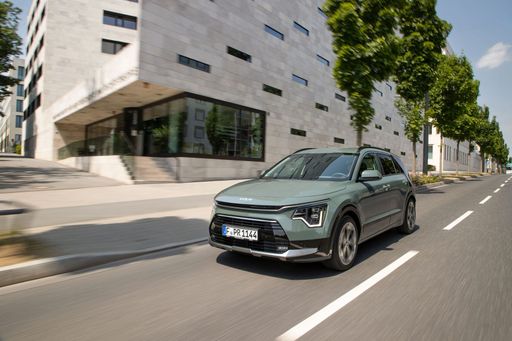
Kia Niro
Kia Niro
The Kia Niro presents itself as a versatile and eco-friendly SUV, blending a stylish design with advanced hybrid technology. Its spacious interior offers comfort and practicality, making it ideal for both city driving and longer journeys. With a focus on efficiency and sustainability, the Niro is a compelling choice for environmentally conscious drivers.
details @ press.kia.com
@ press.kia.com
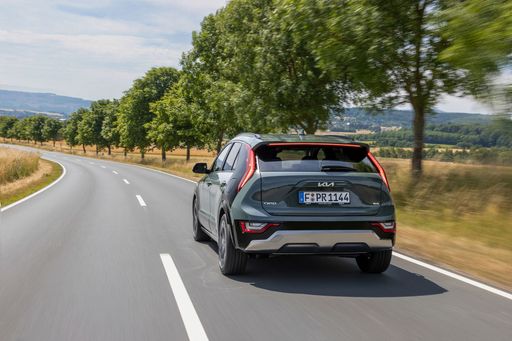 @ press.kia.com
@ press.kia.com
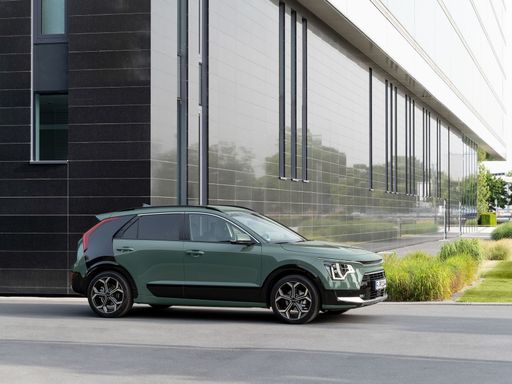 @ press.kia.com
@ press.kia.com
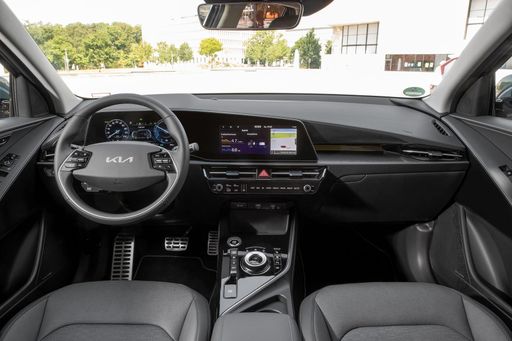 @ press.kia.com
@ press.kia.com
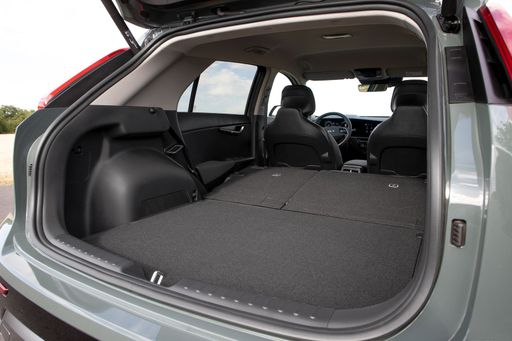 @ press.kia.com
@ press.kia.com
Hyundai Inster
The Inster has quickly captured the attention of automotive enthusiasts with its striking design and dynamic performance. This model seamlessly blends advanced technology with comfort, making it an ideal choice for both daily commutes and adventurous road trips. With its spacious interior and innovative features, the Inster promises an exhilarating driving experience that doesn’t compromise on practicality.
details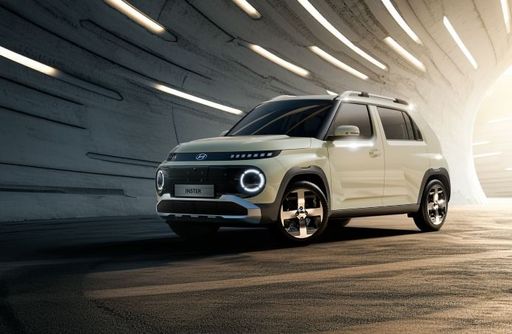 @ hyundai.news
@ hyundai.news
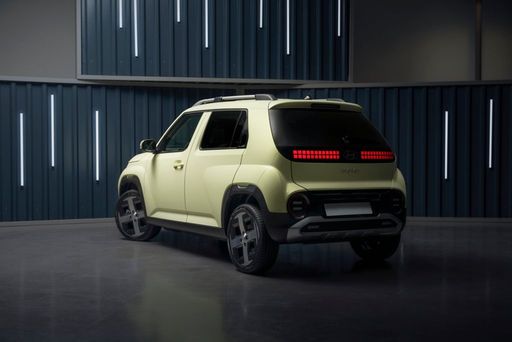 @ hyundai.news
@ hyundai.news
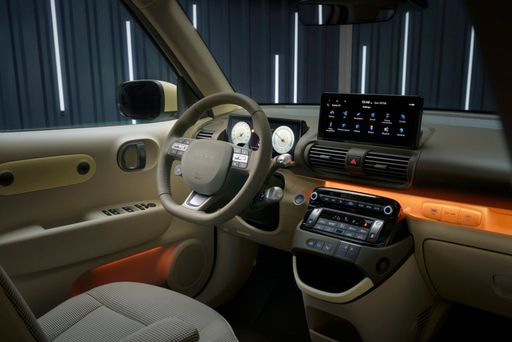 @ hyundai.news
@ hyundai.news

|

|
|
|
|
Costs and Consumption |
|
|---|---|
|
Price
29100 - 38600 £
|
Price
20500 - 25800 £
|
|
Consumption L/100km
2.4 - 4.9 L
|
Consumption L/100km
-
|
|
Consumption kWh/100km
-
|
Consumption kWh/100km
14.3 - 15.1 kWh
|
|
Electric Range
57 - 62 km
|
Electric Range
327 - 370 km
|
|
Battery Capacity
1.3 - 11.1 kWh
|
Battery Capacity
42 - 49 kWh
|
|
co2
53 - 111 g/km
|
co2
0 g/km
|
|
Fuel tank capacity
37 - 42 L
|
Fuel tank capacity
-
|
Dimensions and Body |
|
|---|---|
|
Body Type
SUV
|
Body Type
SUV
|
|
Seats
5
|
Seats
4
|
|
Doors
5
|
Doors
5
|
|
Curb weight
1474 - 1594 kg
|
Curb weight
1380 - 1433 kg
|
|
Trunk capacity
348 - 451 L
|
Trunk capacity
238 - 280 L
|
|
Length
4420 mm
|
Length
3825 - 3845 mm
|
|
Width
1825 mm
|
Width
1610 mm
|
|
Height
1545 mm
|
Height
1575 - 1610 mm
|
|
Max trunk capacity
1342 - 1445 L
|
Max trunk capacity
1059 L
|
|
Payload
466 kg
|
Payload
317 - 357 kg
|
Engine and Performance |
|
|---|---|
|
Engine Type
Full Hybrid, Plugin Hybrid
|
Engine Type
Electric
|
|
Transmission
Automatic
|
Transmission
Automatic
|
|
Transmission Detail
Dual-Clutch Automatic
|
Transmission Detail
Reduction Gearbox
|
|
Drive Type
Front-Wheel Drive
|
Drive Type
Front-Wheel Drive
|
|
Power HP
138 - 180 HP
|
Power HP
97 - 115 HP
|
|
Acceleration 0-100km/h
9.9 - 11.4 s
|
Acceleration 0-100km/h
10.6 - 11.7 s
|
|
Max Speed
170 - 185 km/h
|
Max Speed
140 - 150 km/h
|
|
Torque
265 Nm
|
Torque
147 Nm
|
|
Number of Cylinders
4
|
Number of Cylinders
-
|
|
Power kW
102 - 132 kW
|
Power kW
71 - 85 kW
|
|
Engine capacity
1580 cm3
|
Engine capacity
-
|
General |
|
|---|---|
|
Model Year
2025
|
Model Year
2025
|
|
CO2 Efficiency Class
C, B
|
CO2 Efficiency Class
A
|
|
Brand
Kia
|
Brand
Hyundai
|
Is the Kia Niro offered with different drivetrains?
The Kia Niro is available as Front-Wheel Drive.
The prices and data displayed are estimates based on German list prices and may vary by country. This information is not legally binding.
